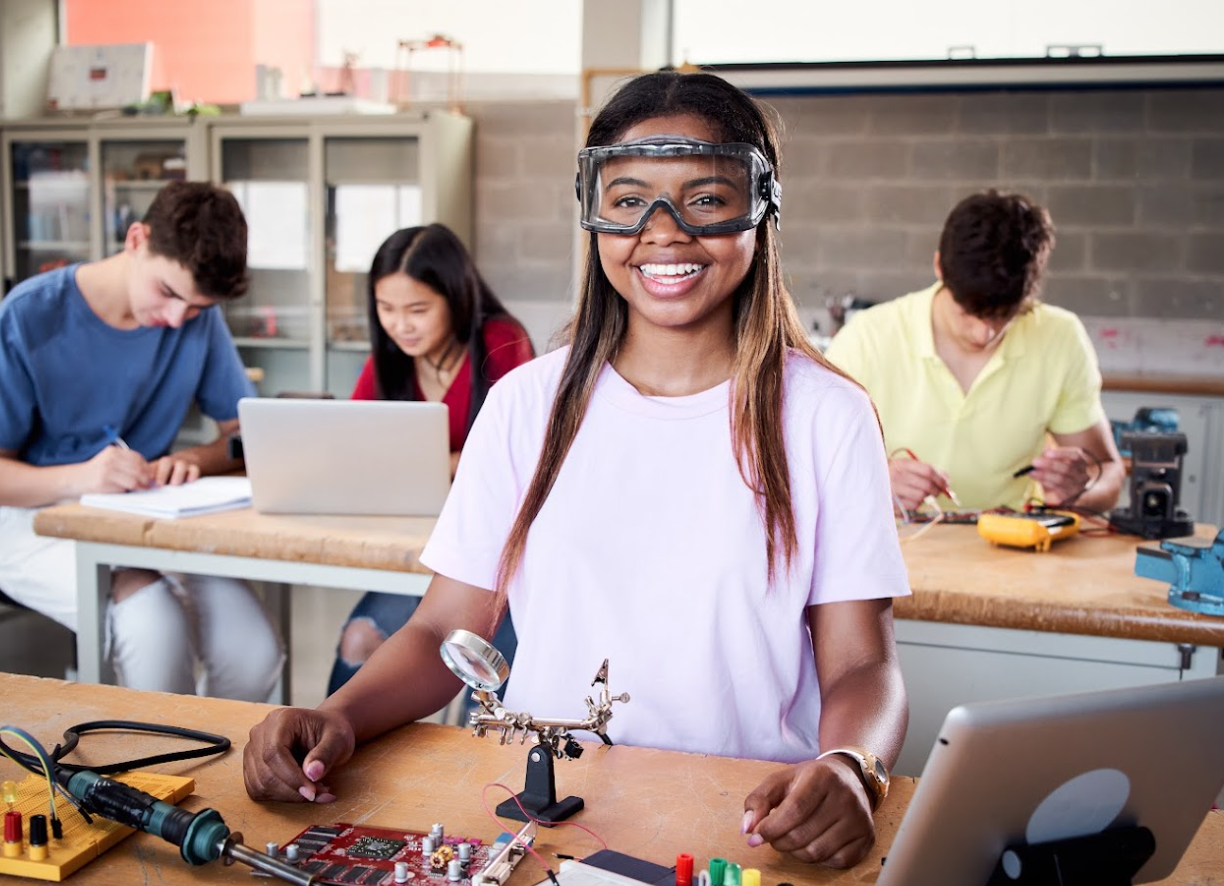
Only 26% of U.S. eighth graders are proficient in math, according to the 2022 National Center for Education Statistics. The proficiency rate is even lower for certain student groups. Only 14% of students who identify as Latinx/Hispanic, and 9% of students who identify as Black/African American, are math proficient by the end of middle school. (source) Our education system is failing our students.
Math serves as a gateway to study advanced subjects such as physics, engineering, chemistry, biomedicine, and environmental science. Without a solid math foundation to rely on, high school students are not able to pursue or succeed in more advanced STEM subjects. In turn, these students will not pursue STEM in college which leads to a dearth of future STEM experts able to drive innovative solutions.
Student success rates are tied to the effectiveness of teachers. Educators with real world experience are both inspiring and able to guide students in the pursuit of a higher STEM education.
The bipartisan congressional STEM Education Caucus has said: “Our knowledge-based economy is driven by constant innovation. The foundation of innovation lies in a dynamic, motivated and well-educated workforce equipped with STEM skills”. Yet, studies have shown that: “Educators lacked in-depth knowledge of STEM careers, and, as a consequence, they were not prepared to guide students to those fields.” (source)
In addition, the lack of qualified STEM educators has worsened in U.S. schools in the last decade, threatening our position in the global marketplace, according to a recent The74 article. By the 2020-2021 school year, 31% of public schools were unable to fill a teaching position for biology or life sciences. 32% of public schools were unable to fill a teaching position for mathematics, and 26% to 47% for physical sciences such as physics, geology and engineering. (source)
Are Scientists, Engineers, Mathematicians working in their respective industries or academia a part of the solution to our STEM Education Crisis?
Professionals who have an advanced degree and work experience in a STEM field are uniquely equipped to bring real-world experience to middle and high school STEM-subject classrooms.
Additionally, when STEM professionals become teachers, they often bring their industry connections to the classroom to facilitate guest lecturers, off-campus site visits and the donation of classroom materials.
By leveraging their professional STEM expertise in the classroom, exposing students in under-resourced communities to STEM subjects, and giving students the confidence that they belong in science, technology, engineering and math, STEM professionals can be a part of the solution to the U.S. STEM education crisis.
EnCorps provides scientists and engineers with opportunities to connect and educate middle and high school students in under-resourced communities. Join us at our upcoming webinar to learn how to:
- Share your STEM expertise and problem-solving skills
- Connect with students in under-resourced communities
- Inspire students to believe that they belong in STEM
Together, we can make a difference.
